The best foods to lower your cholesterol, according to a nutritionist
These must-buy supermarket staples massage your arteries naturally over time.
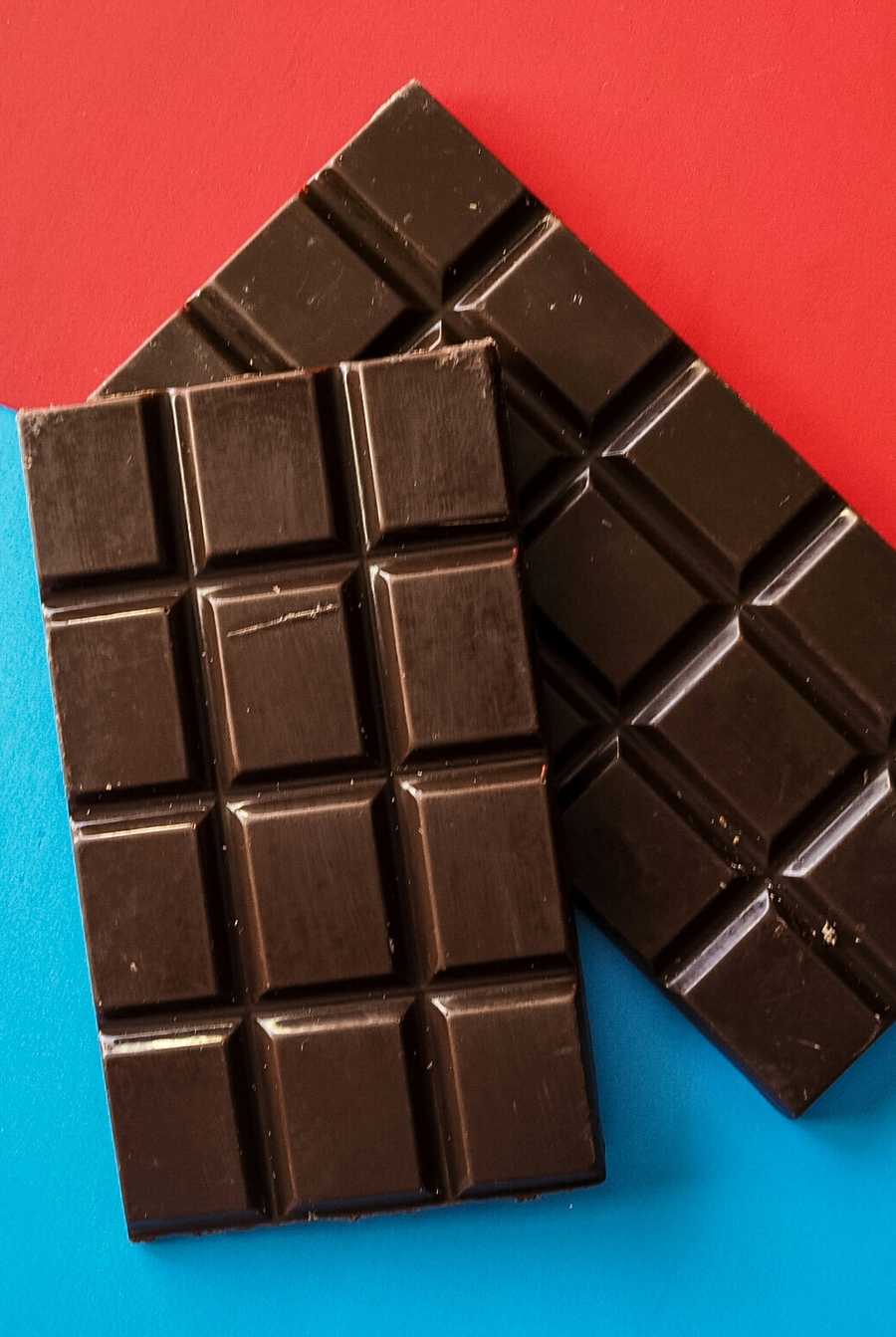
Dark chocolate
Dark chocolate is a naturally sweet treat you should feel great about; it contains more cocoa than other chocolate products, which provides higher amounts of flavonoids in each serving. A 2017 study published in the Journal of the American Heart Association found that eating dark chocolate (as well as almonds!) improved blood lipid profiles over time. Try to select a dark chocolate product that is at least 70% concentrated or higher, said Stefani Sassos, a registered dietitian with the Good Housekeeping Institute.
PHOTO: Reese Lassman / EyeEm
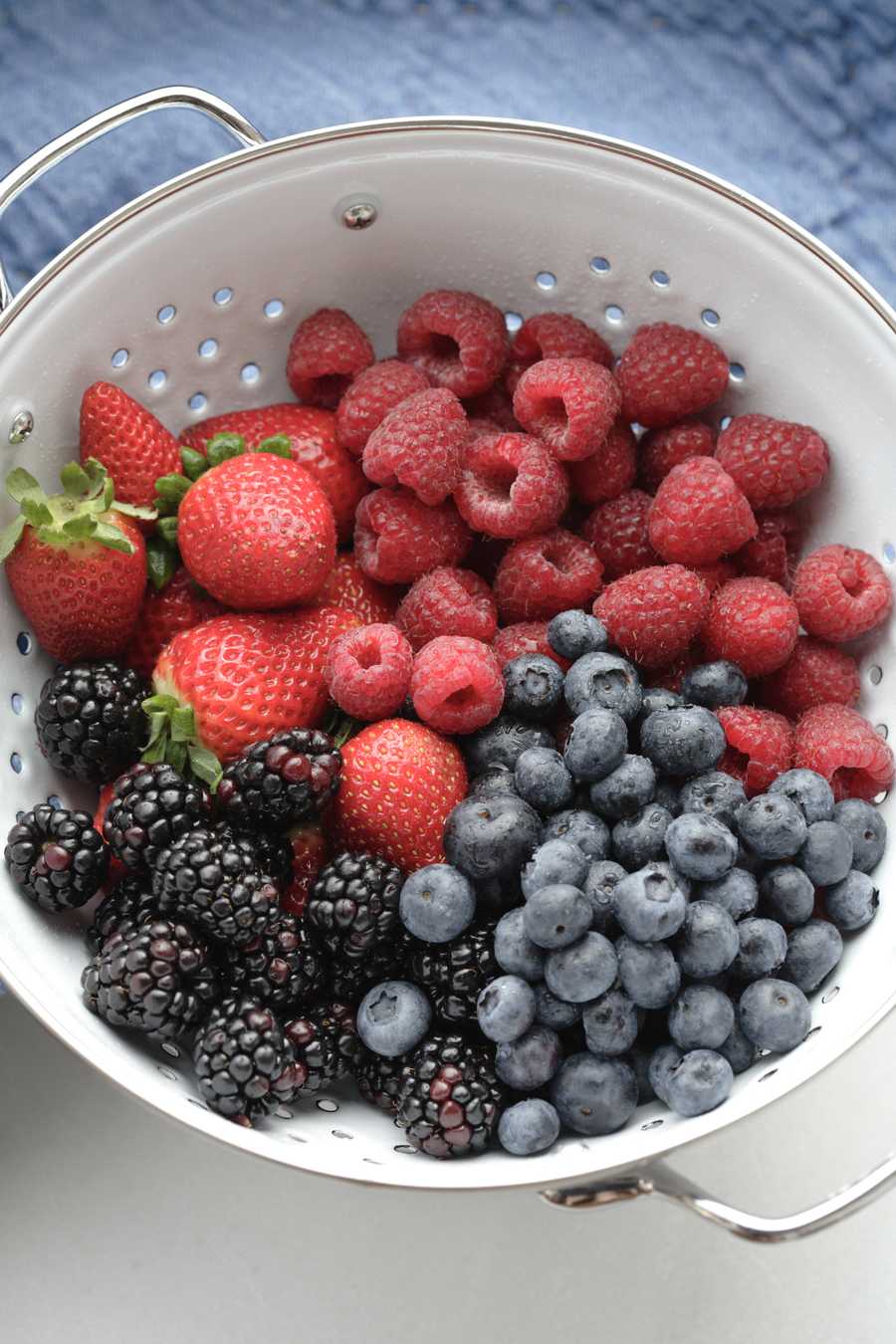
Berries
Polyphenols, which are plant-based compounds that naturally help to regulate your cardiovascular system, are found in high amounts in strawberries. Research has linked strawberries to a lower risk of heart disease due to their high polyphenol counts.
With 8 grams of fiber in just a cup, raspberries can move your numbers in the right direction. Eating adequate fiber (at least 25 grams per day) decreases LDL levels and supports healthy digestion.
Some studies have connected eating blueberries regularly with decreased blood pressure. That’s thanks to their circulation-boosting effect on blood vessels (otherwise known as "vasodilation"), which slows the rate of atherosclerosis.
PHOTO: John Block
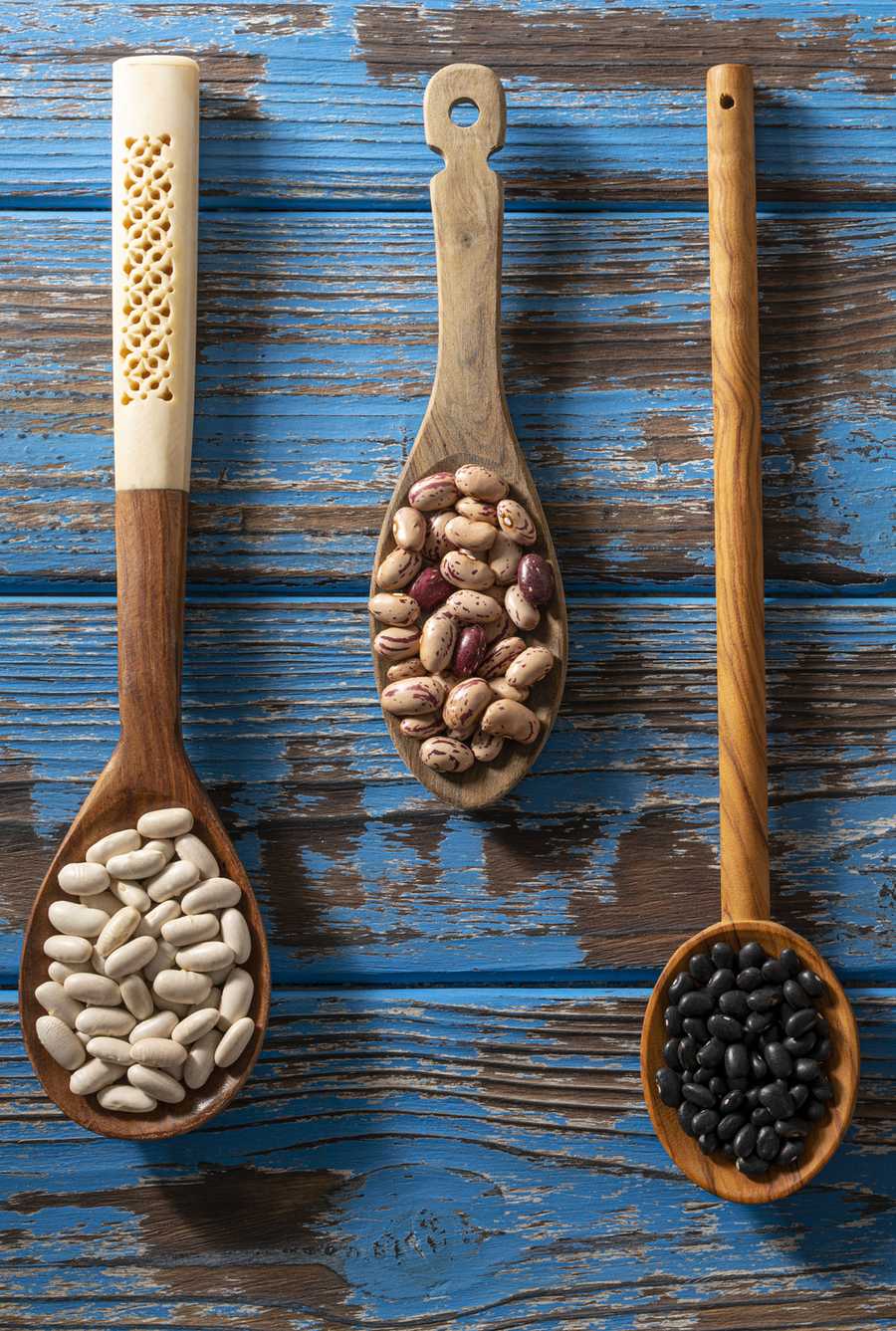
Beans
Fiber, especially the soluble kind in beans, is linked with improved heart health. Chickpeas give one of the best cholesterol-lowering boosts. Just 1/3 cup of chickpeas contains about 12 grams of fiber — half your daily value. What's more, these hearty beans are packed with antioxidants and associated with lower LDLs.
Black beans are also fiber-dense, with 8 grams in a half-cup, 100-calorie serving. You'll get plenty of filling plant-based protein too.
Lentils are pulses, the dry edible seeds of certain crops (like beans, chickpeas, and peas). Pulses are everywhere these days because they’re packed with plant-based protein and fiber, not to mention antioxidants, minerals, and B vitamins. All of those compounds help protect you from plaque buildup while optimizing blood flow and assisting your body in efficiently using the nutrients you consume.
PHOTO: MEDITERRANEAN

Eggplant and okra
Eggplant has been linked to reducing oxidative stress in a 2015 review article published in Evidence-Based Complimentary and Alternative Medicine. Stress can lead to high cholesterol by initiating chronic inflammation and plaque form.
Similar in flavor to eggplant, okra is a low-calorie veggie that's perfect as a healthy weeknight side and rich in heart-healthy soluble fiber. It's also a good source of polyphenols, which fights inflammation naturally as part of a balanced diet.
PHOTO: George 'TheHouseKeeper' Mateo

Potatoes
A baked potato actually provides more heart-healthy potassium than a banana. Getting an adequate amount of this all-important nutrient can also lower blood pressure and reduce your risk of stroke and other cardiovascular diseases.
PHOTO: Westend61

Tomatoes
Here's another potassium all-star, with vitamins A and C to boot. Tomatoes also contain the antioxidant lycopene, a compound linked to reducing LDL cholesterol levels in higher doses.
PHOTO: twomeows

Green leafy vegetables
Adding more leafy greens to your plate can help lower cholesterol by promoting your body production of nitric oxide (NO), which helps dilate blood vessels and reduce atherosclerosis.
Kale hits the heart-healthy jackpot because it's rich in potassium, magnesium, antioxidants and fiber. Additionally, the minerals in cruciferous vegetables (including cabbage and Brussels sprouts) can work to counterbalance the effects of sodium, warding off hypertension.
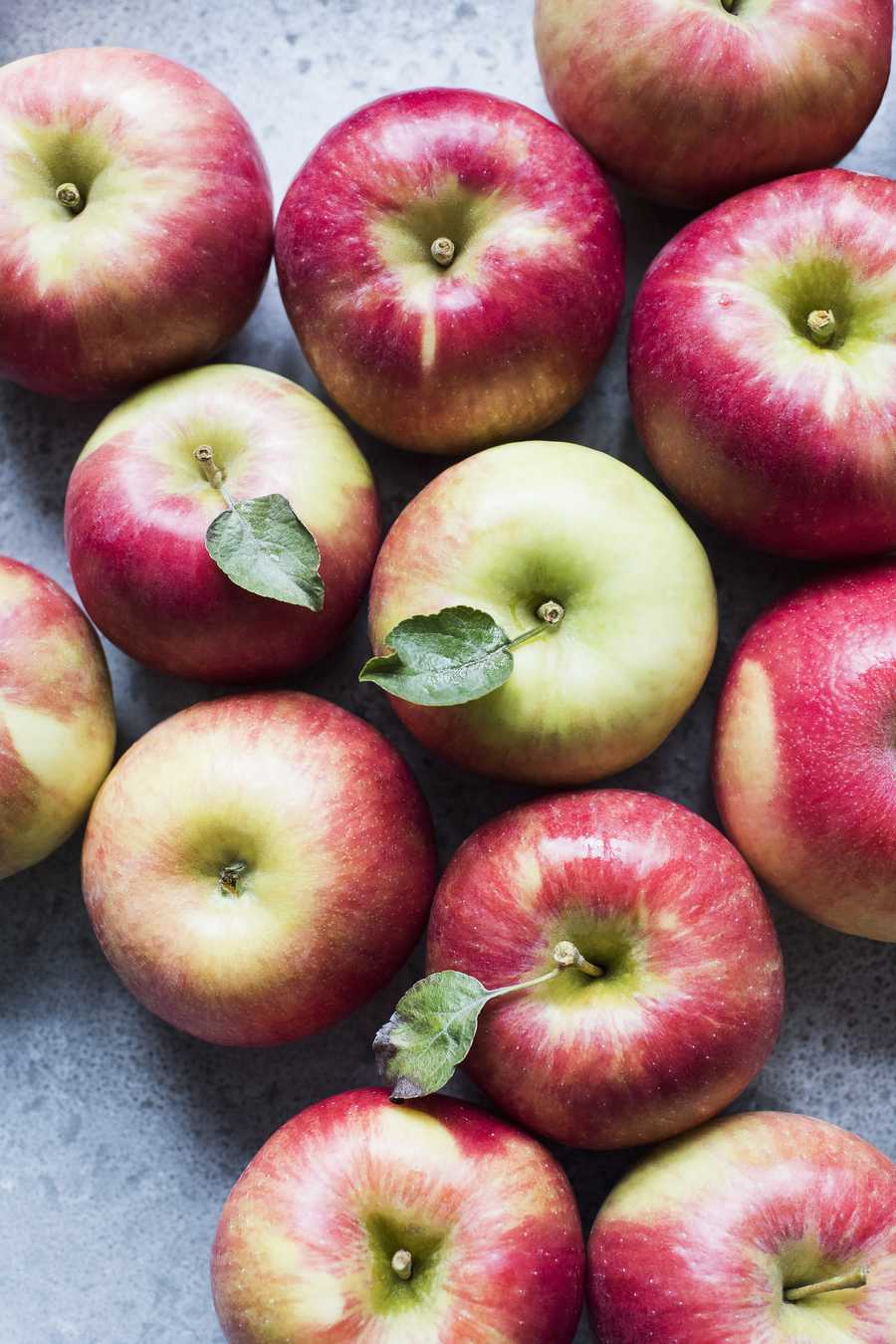
Apples
Science agrees: An apple a day may in fact keep your cardiologist away. Evidence has shown that frequent apple consumption may reduce total cholesterol. That’s thanks to the phenolic compounds found in apple skins — the antioxidant compounds that promote healthy cellular function and proper blood flow.
PHOTO: Magdalena Niemczyk
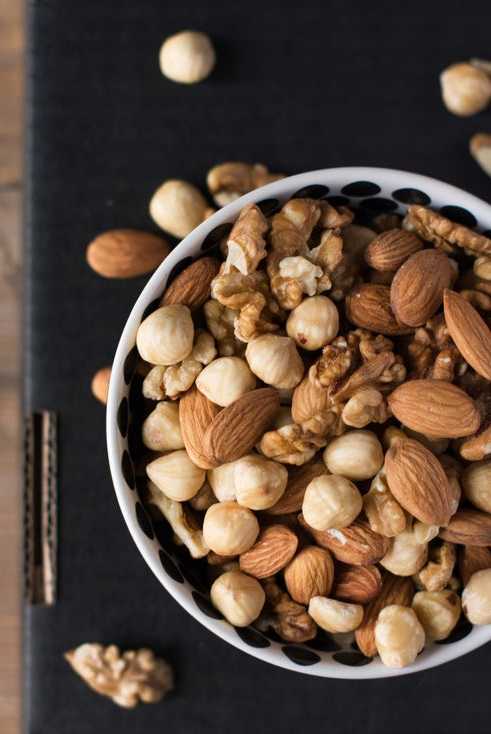
Nuts
Eating walnuts regularly has been linked with a reduced risk of heart disease, according to data from the Nurses' Health Study. Eating as little as one serving of these nuts each week can lower your chances of cardiovascular disease by up to 19%!
Peanuts pack antioxidant and anti-inflammatory compounds linked with blocking cholesterol absorption in the gut.
If you’re on the hunt for a snack, consider picking up some almonds. Studies have shown that consistent intake of almonds reduces risk of heart disease by improving cholesterol levels — maintaining HDL and lowering LDL.
Research has also linked pistachios with raising HDL cholesterol while lowering LDL cholesterol. Since these nuts are fiber-rich and antioxidant-packed, they also protect your body's cells from oxidative stress, the damage that allows for plaque build-up in your arteries.

Sweet potatoes, squash and pumpkin
Sweet potatoes, butternut squash, parsnips and other good-for-you tubers are lower in calories, filled with fiber and chock-full of potassium and beta-carotene, both of which protect against heart disease.
Low in calories but rich in fiber, pumpkin is an antioxidant-rich, seasonal swap for sweet potatoes.
PHOTO: """Riou, Jean-Christophe"""
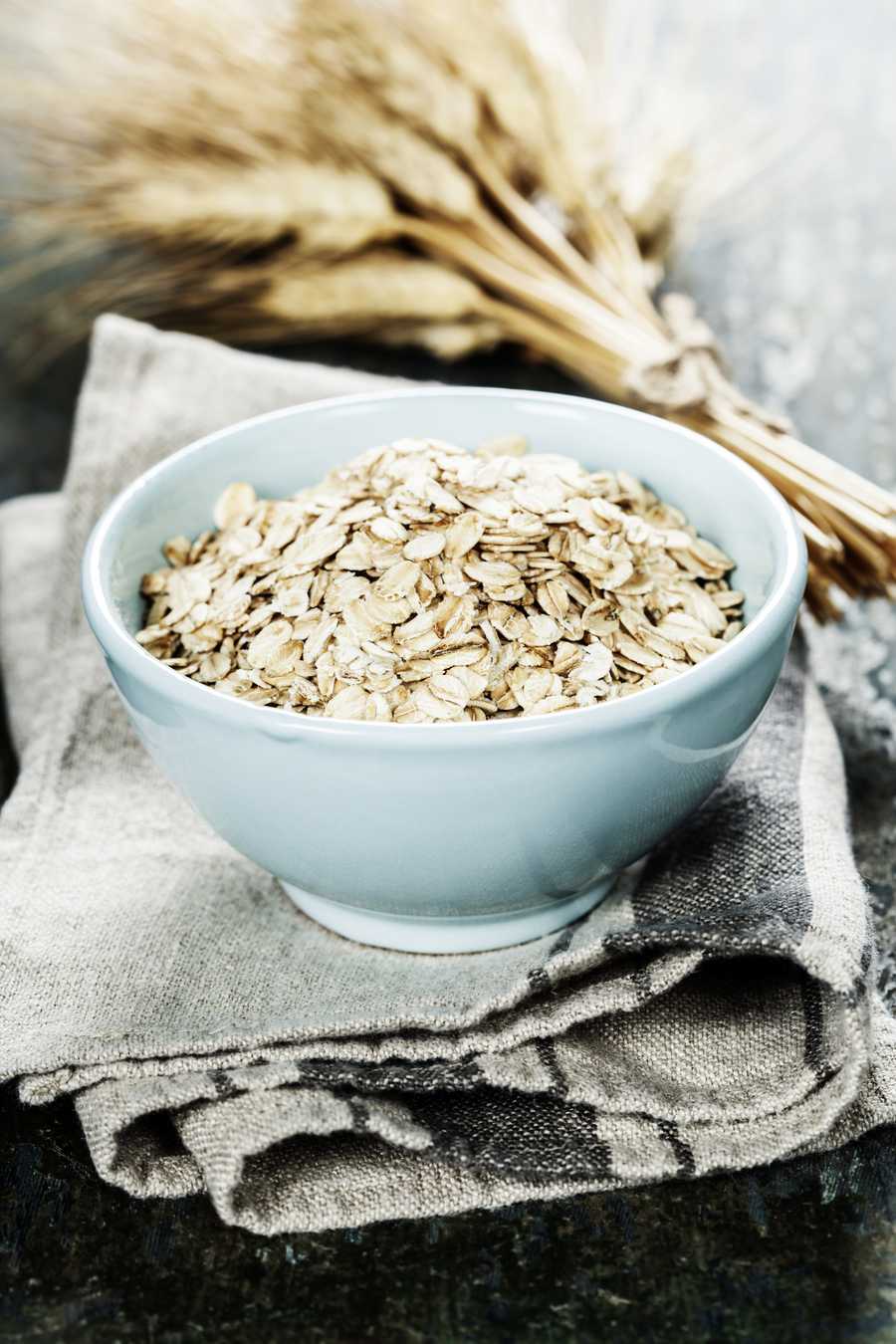
Oats and Quinoa
Oats contain a type of soluble fiber called beta-glucan, which is linked with lowering LDL levels, according to the British Journal of Nutrition. It does this by absorbing water in your GI tract and removing excess saturated fat before it enters your bloodstream.
Cooking up more quinoa could lower your risk of heart disease by improving total cholesterol, triglycerides, and lowering LDL, according to recent research studies. That’s thanks to the wholesome grain’s antioxidant, fiber, and B vitamin content that may improve blood flow.
PHOTO: klenova
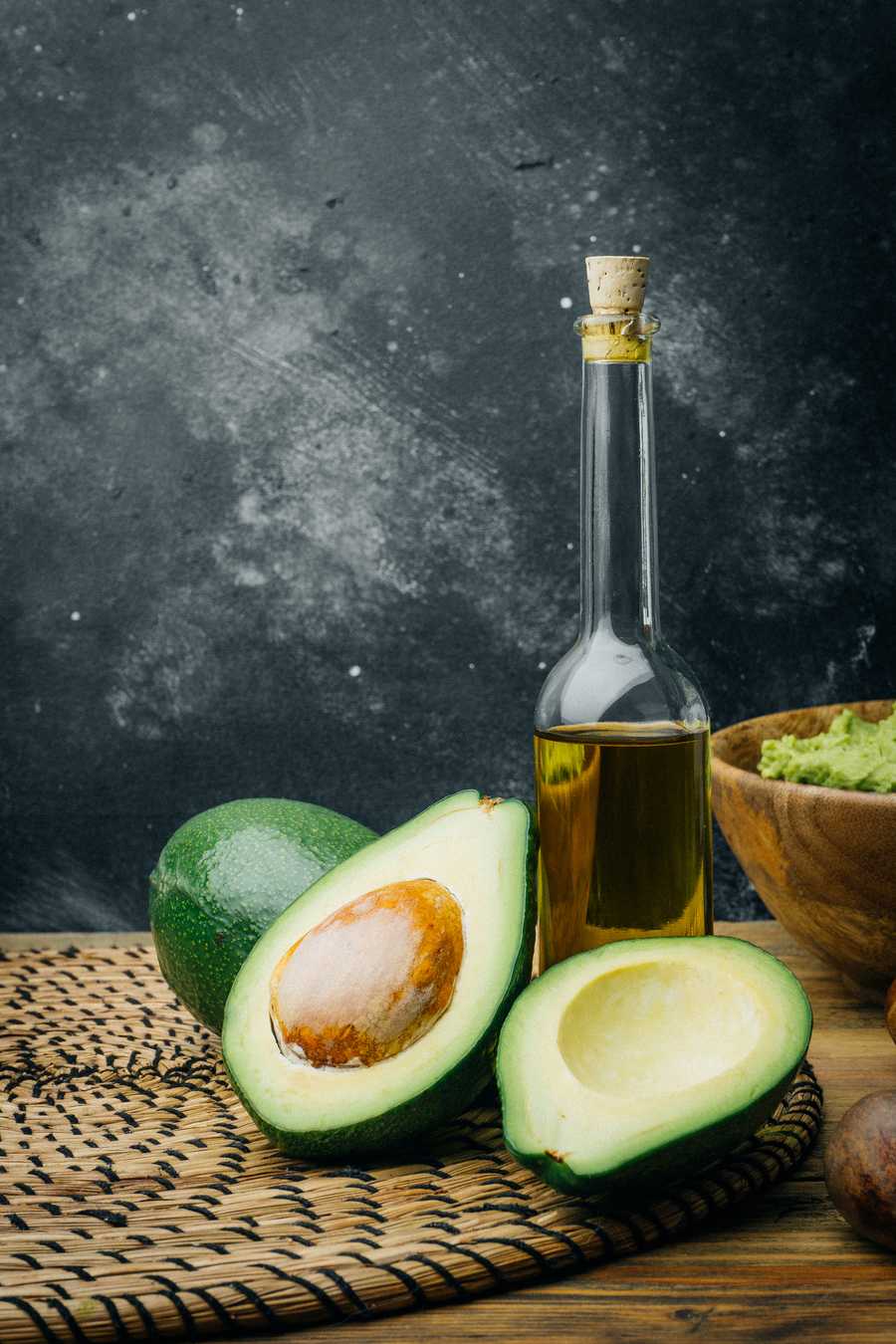
Avocado and avocado oil
Because they're rich in heart-healthy unsaturated fats and fiber, avocados can help reduce your risk of cardiovascular disease and stroke. Clinical trials have consistently found that eating avocados can lower your LDL cholesterol, with a beneficial effect on lipid and lipoprotein profiles.
Extracted from the pulp of the avocado fruit, avocado oil carries many of the same benefits; it's loaded with heart-healthy monounsaturated fats which can help reduce high blood pressure and cholesterol.
PHOTO: Uladzimir Zuyeu
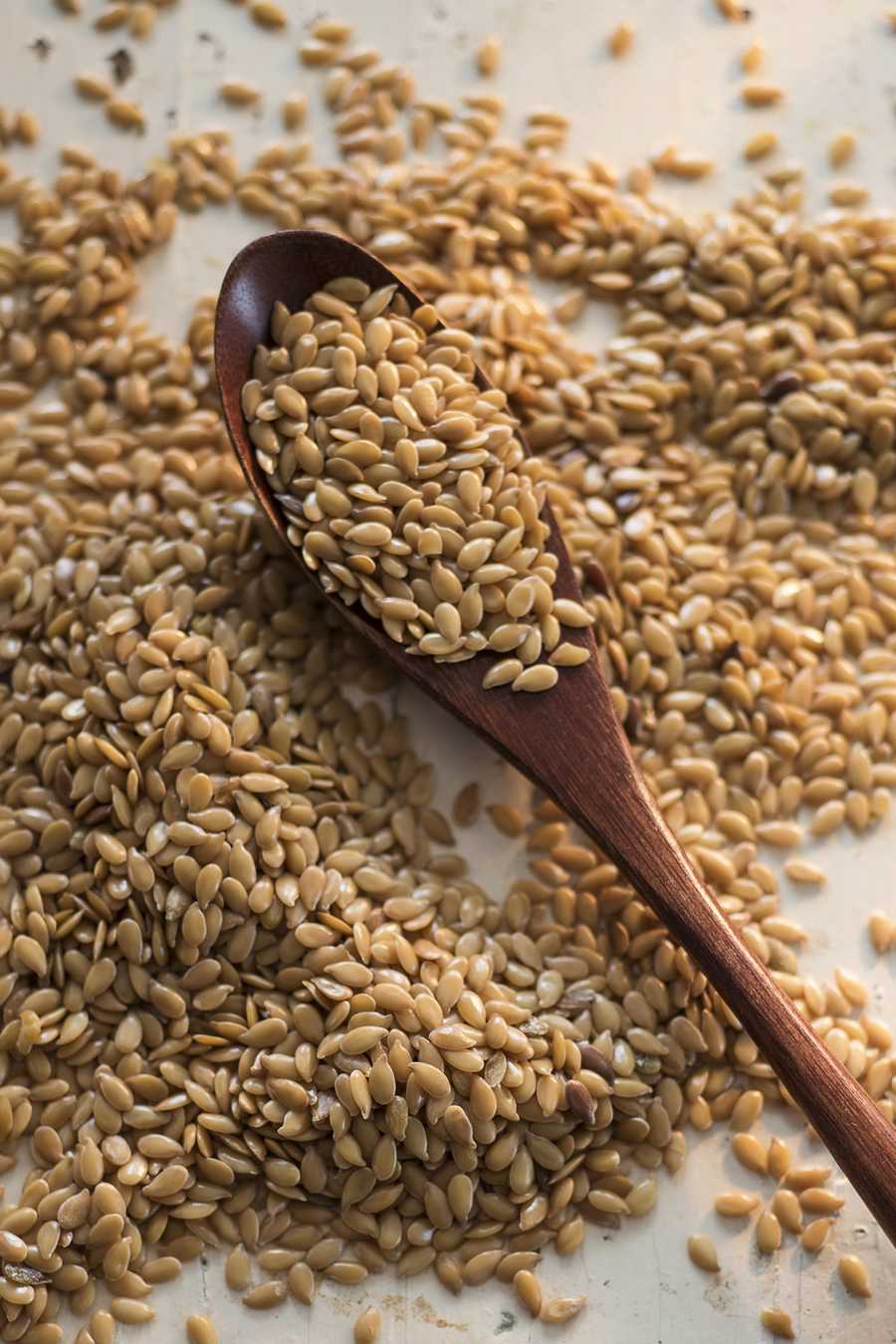
Flaxseeds
A great source of fiber, flaxseeds are also chock full of omega-3 fatty acids and lignans, which is another plant-based compound that can holistically lower your risk of stroke, per research published in Nutrition Reviews. These are all nutrients that the American Heart Association recommends for improving heart health. Plus, flaxseeds contain phytosterols which can help reduce LDL cholesterol in the body.
PHOTO: Tetra Images

Fatty fish
As one of nature’s best sources of omega-3 fatty acids, salmon has many health benefits, including reducing inflammation and triglycerides.
Whether you go fresh or canned, eating at least two servings of tuna per week can help slow the growth rate of plaque, according to the American Heart Association. The omega-3 fatty acids found in fish can also decrease triglyceride levels, another risk factor for heart disease.
PHOTO: Eugene Mymrin

Olives and olive oil
This Mediterranean diet staple is chock-full of monounsaturated fatty acids, the type of fat linked with improving total cholesterol levels. Specific compounds in olives may also limit the initiation of the inflammatory process — another high cholesterol-promoting risk factor.
Plus, olive oil is packed with antioxidants like other plant-based oils: Canola, avocado, flaxseed, peanut, sesame, coconut and walnut.
PHOTO: barol16

Grapes
Like other produce, grapes contain polyphenolic compounds that may reduce cellular damage. Eating about 1 to 2 cups of grapes per day can also help protect your tissues and decrease markers of inflammation.
PHOTO: Alexandra Grablewski

Buckwheat, barley and bulgur
These fiber-rich grains provide similar cholesterol-lowering benefits as oats, but our favorite thing about B grains is their versatility. Try buckwheat noodles or buckwheat flour in pancakes, barley in soups, and bulgur in salads and cereal for a healthy dose of soluble fiber.
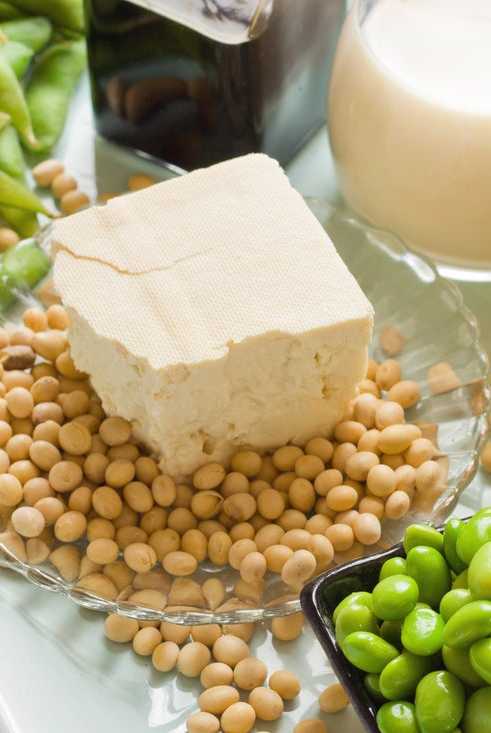
Soy foods
While research has linked soybeans, tofu, and soy milk with lower cholesterol, edamame is another delicious way to help decrease bad cholesterol by replacing other proteins typically high in saturated fat. Since edamame is also full of fiber, it can help curb cravings, too.
Filled with plant-based antioxidants and minerals, protein-packed unsweetened soy milk can help improve your lipid levels. That’s because it’s lower in saturated fat than other vegan swaps. Unsweetened versions cut back on sneaky sources of added sugar, so use it in your morning latté for a cholesterol-lowering caffeine boost.
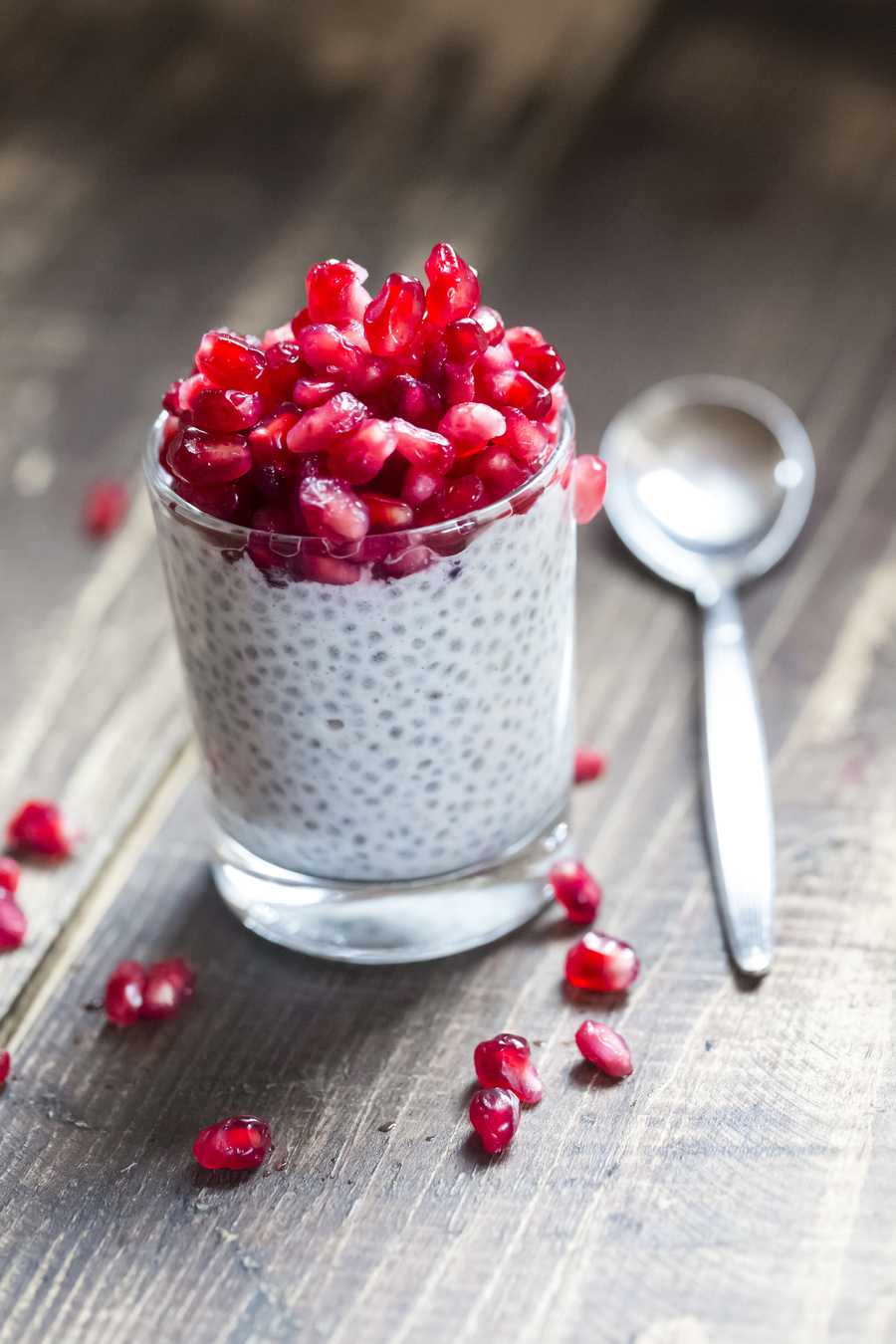
Chia seeds
Looking for a vegetarian form of omega-3s? Chia seeds are full of the fatty acid, as well as fiber, protein, and antioxidants. They can be consumed whole or added to soups, cereal, smoothies, puddings and even baked goods.

Bananas
Bananas lower cholesterol by removing it from your digestive system, preventing it from moving into your bloodstream and clogging your arteries. For an extra heart-healthy boost, slice bananas on top of morning oats with a tablespoon of chia seeds.
Dark chocolate
Dark chocolate is a naturally sweet treat you should feel great about; it contains more cocoa than other chocolate products, which provides higher amounts of flavonoids in each serving. A 2017 study published in the Journal of the American Heart Association found that eating dark chocolate (as well as almonds!) improved blood lipid profiles over time. Try to select a dark chocolate product that is at least 70% concentrated or higher, said Stefani Sassos, a registered dietitian with the Good Housekeeping Institute.
PHOTO: Reese Lassman / EyeEm
Berries
Polyphenols, which are plant-based compounds that naturally help to regulate your cardiovascular system, are found in high amounts in strawberries. Research has linked strawberries to a lower risk of heart disease due to their high polyphenol counts.
With 8 grams of fiber in just a cup, raspberries can move your numbers in the right direction. Eating adequate fiber (at least 25 grams per day) decreases LDL levels and supports healthy digestion.
Some studies have connected eating blueberries regularly with decreased blood pressure. That’s thanks to their circulation-boosting effect on blood vessels (otherwise known as "vasodilation"), which slows the rate of atherosclerosis.
PHOTO: John Block
Beans
Fiber, especially the soluble kind in beans, is linked with improved heart health. Chickpeas give one of the best cholesterol-lowering boosts. Just 1/3 cup of chickpeas contains about 12 grams of fiber — half your daily value. What's more, these hearty beans are packed with antioxidants and associated with lower LDLs.
Black beans are also fiber-dense, with 8 grams in a half-cup, 100-calorie serving. You'll get plenty of filling plant-based protein too.
Lentils are pulses, the dry edible seeds of certain crops (like beans, chickpeas, and peas). Pulses are everywhere these days because they’re packed with plant-based protein and fiber, not to mention antioxidants, minerals, and B vitamins. All of those compounds help protect you from plaque buildup while optimizing blood flow and assisting your body in efficiently using the nutrients you consume.
PHOTO: MEDITERRANEAN
Eggplant and okra
Eggplant has been linked to reducing oxidative stress in a 2015 review article published in Evidence-Based Complimentary and Alternative Medicine. Stress can lead to high cholesterol by initiating chronic inflammation and plaque form.
Similar in flavor to eggplant, okra is a low-calorie veggie that's perfect as a healthy weeknight side and rich in heart-healthy soluble fiber. It's also a good source of polyphenols, which fights inflammation naturally as part of a balanced diet.
PHOTO: George 'TheHouseKeeper' Mateo
Potatoes
A baked potato actually provides more heart-healthy potassium than a banana. Getting an adequate amount of this all-important nutrient can also lower blood pressure and reduce your risk of stroke and other cardiovascular diseases.
PHOTO: Westend61
Tomatoes
Here's another potassium all-star, with vitamins A and C to boot. Tomatoes also contain the antioxidant lycopene, a compound linked to reducing LDL cholesterol levels in higher doses.
PHOTO: twomeows
Green leafy vegetables
Adding more leafy greens to your plate can help lower cholesterol by promoting your body production of nitric oxide (NO), which helps dilate blood vessels and reduce atherosclerosis.
Kale hits the heart-healthy jackpot because it's rich in potassium, magnesium, antioxidants and fiber. Additionally, the minerals in cruciferous vegetables (including cabbage and Brussels sprouts) can work to counterbalance the effects of sodium, warding off hypertension.
Apples
Science agrees: An apple a day may in fact keep your cardiologist away. Evidence has shown that frequent apple consumption may reduce total cholesterol. That’s thanks to the phenolic compounds found in apple skins — the antioxidant compounds that promote healthy cellular function and proper blood flow.
PHOTO: Magdalena Niemczyk
Nuts
Eating walnuts regularly has been linked with a reduced risk of heart disease, according to data from the Nurses' Health Study. Eating as little as one serving of these nuts each week can lower your chances of cardiovascular disease by up to 19%!
Peanuts pack antioxidant and anti-inflammatory compounds linked with blocking cholesterol absorption in the gut.
If you’re on the hunt for a snack, consider picking up some almonds. Studies have shown that consistent intake of almonds reduces risk of heart disease by improving cholesterol levels — maintaining HDL and lowering LDL.
Research has also linked pistachios with raising HDL cholesterol while lowering LDL cholesterol. Since these nuts are fiber-rich and antioxidant-packed, they also protect your body's cells from oxidative stress, the damage that allows for plaque build-up in your arteries.
Sweet potatoes, squash and pumpkin
Sweet potatoes, butternut squash, parsnips and other good-for-you tubers are lower in calories, filled with fiber and chock-full of potassium and beta-carotene, both of which protect against heart disease.
Low in calories but rich in fiber, pumpkin is an antioxidant-rich, seasonal swap for sweet potatoes.
PHOTO: """Riou, Jean-Christophe"""
Oats and Quinoa
Oats contain a type of soluble fiber called beta-glucan, which is linked with lowering LDL levels, according to the British Journal of Nutrition. It does this by absorbing water in your GI tract and removing excess saturated fat before it enters your bloodstream.
Cooking up more quinoa could lower your risk of heart disease by improving total cholesterol, triglycerides, and lowering LDL, according to recent research studies. That’s thanks to the wholesome grain’s antioxidant, fiber, and B vitamin content that may improve blood flow.
PHOTO: klenova
Avocado and avocado oil
Because they're rich in heart-healthy unsaturated fats and fiber, avocados can help reduce your risk of cardiovascular disease and stroke. Clinical trials have consistently found that eating avocados can lower your LDL cholesterol, with a beneficial effect on lipid and lipoprotein profiles.
Extracted from the pulp of the avocado fruit, avocado oil carries many of the same benefits; it's loaded with heart-healthy monounsaturated fats which can help reduce high blood pressure and cholesterol.
PHOTO: Uladzimir Zuyeu
Flaxseeds
A great source of fiber, flaxseeds are also chock full of omega-3 fatty acids and lignans, which is another plant-based compound that can holistically lower your risk of stroke, per research published in Nutrition Reviews. These are all nutrients that the American Heart Association recommends for improving heart health. Plus, flaxseeds contain phytosterols which can help reduce LDL cholesterol in the body.
PHOTO: Tetra Images
Fatty fish
As one of nature’s best sources of omega-3 fatty acids, salmon has many health benefits, including reducing inflammation and triglycerides.
Whether you go fresh or canned, eating at least two servings of tuna per week can help slow the growth rate of plaque, according to the American Heart Association. The omega-3 fatty acids found in fish can also decrease triglyceride levels, another risk factor for heart disease.
PHOTO: Eugene Mymrin
Olives and olive oil
This Mediterranean diet staple is chock-full of monounsaturated fatty acids, the type of fat linked with improving total cholesterol levels. Specific compounds in olives may also limit the initiation of the inflammatory process — another high cholesterol-promoting risk factor.
Plus, olive oil is packed with antioxidants like other plant-based oils: Canola, avocado, flaxseed, peanut, sesame, coconut and walnut.
PHOTO: barol16
Grapes
Like other produce, grapes contain polyphenolic compounds that may reduce cellular damage. Eating about 1 to 2 cups of grapes per day can also help protect your tissues and decrease markers of inflammation.
PHOTO: Alexandra Grablewski
Buckwheat, barley and bulgur
These fiber-rich grains provide similar cholesterol-lowering benefits as oats, but our favorite thing about B grains is their versatility. Try buckwheat noodles or buckwheat flour in pancakes, barley in soups, and bulgur in salads and cereal for a healthy dose of soluble fiber.
Soy foods
While research has linked soybeans, tofu, and soy milk with lower cholesterol, edamame is another delicious way to help decrease bad cholesterol by replacing other proteins typically high in saturated fat. Since edamame is also full of fiber, it can help curb cravings, too.
Filled with plant-based antioxidants and minerals, protein-packed unsweetened soy milk can help improve your lipid levels. That’s because it’s lower in saturated fat than other vegan swaps. Unsweetened versions cut back on sneaky sources of added sugar, so use it in your morning latté for a cholesterol-lowering caffeine boost.
Chia seeds
Looking for a vegetarian form of omega-3s? Chia seeds are full of the fatty acid, as well as fiber, protein, and antioxidants. They can be consumed whole or added to soups, cereal, smoothies, puddings and even baked goods.
Bananas
Bananas lower cholesterol by removing it from your digestive system, preventing it from moving into your bloodstream and clogging your arteries. For an extra heart-healthy boost, slice bananas on top of morning oats with a tablespoon of chia seeds.
Dark chocolate
Dark chocolate is a naturally sweet treat you should feel great about; it contains more cocoa than other chocolate products, which provides higher amounts of flavonoids in each serving. A 2017 study published in the Journal of the American Heart Association found that eating dark chocolate (as well as almonds!) improved blood lipid profiles over time. Try to select a dark chocolate product that is at least 70% concentrated or higher, said Stefani Sassos, a registered dietitian with the Good Housekeeping Institute.
PHOTO: Reese Lassman / EyeEm
Berries
Polyphenols, which are plant-based compounds that naturally help to regulate your cardiovascular system, are found in high amounts in strawberries. Research has linked strawberries to a lower risk of heart disease due to their high polyphenol counts.
With 8 grams of fiber in just a cup, raspberries can move your numbers in the right direction. Eating adequate fiber (at least 25 grams per day) decreases LDL levels and supports healthy digestion.
Some studies have connected eating blueberries regularly with decreased blood pressure. That’s thanks to their circulation-boosting effect on blood vessels (otherwise known as "vasodilation"), which slows the rate of atherosclerosis.
PHOTO: John Block
Beans
Fiber, especially the soluble kind in beans, is linked with improved heart health. Chickpeas give one of the best cholesterol-lowering boosts. Just 1/3 cup of chickpeas contains about 12 grams of fiber — half your daily value. What's more, these hearty beans are packed with antioxidants and associated with lower LDLs.
Black beans are also fiber-dense, with 8 grams in a half-cup, 100-calorie serving. You'll get plenty of filling plant-based protein too.
Lentils are pulses, the dry edible seeds of certain crops (like beans, chickpeas, and peas). Pulses are everywhere these days because they’re packed with plant-based protein and fiber, not to mention antioxidants, minerals, and B vitamins. All of those compounds help protect you from plaque buildup while optimizing blood flow and assisting your body in efficiently using the nutrients you consume.
PHOTO: MEDITERRANEAN
Eggplant and okra
Eggplant has been linked to reducing oxidative stress in a 2015 review article published in Evidence-Based Complimentary and Alternative Medicine. Stress can lead to high cholesterol by initiating chronic inflammation and plaque form.
Similar in flavor to eggplant, okra is a low-calorie veggie that's perfect as a healthy weeknight side and rich in heart-healthy soluble fiber. It's also a good source of polyphenols, which fights inflammation naturally as part of a balanced diet.
PHOTO: George 'TheHouseKeeper' Mateo
Potatoes
A baked potato actually provides more heart-healthy potassium than a banana. Getting an adequate amount of this all-important nutrient can also lower blood pressure and reduce your risk of stroke and other cardiovascular diseases.
PHOTO: Westend61
Tomatoes
Here's another potassium all-star, with vitamins A and C to boot. Tomatoes also contain the antioxidant lycopene, a compound linked to reducing LDL cholesterol levels in higher doses.
PHOTO: twomeows
Green leafy vegetables
Adding more leafy greens to your plate can help lower cholesterol by promoting your body production of nitric oxide (NO), which helps dilate blood vessels and reduce atherosclerosis.
Kale hits the heart-healthy jackpot because it's rich in potassium, magnesium, antioxidants and fiber. Additionally, the minerals in cruciferous vegetables (including cabbage and Brussels sprouts) can work to counterbalance the effects of sodium, warding off hypertension.
Apples
Science agrees: An apple a day may in fact keep your cardiologist away. Evidence has shown that frequent apple consumption may reduce total cholesterol. That’s thanks to the phenolic compounds found in apple skins — the antioxidant compounds that promote healthy cellular function and proper blood flow.
PHOTO: Magdalena Niemczyk
Nuts
Eating walnuts regularly has been linked with a reduced risk of heart disease, according to data from the Nurses' Health Study. Eating as little as one serving of these nuts each week can lower your chances of cardiovascular disease by up to 19%!
Peanuts pack antioxidant and anti-inflammatory compounds linked with blocking cholesterol absorption in the gut.
If you’re on the hunt for a snack, consider picking up some almonds. Studies have shown that consistent intake of almonds reduces risk of heart disease by improving cholesterol levels — maintaining HDL and lowering LDL.
Research has also linked pistachios with raising HDL cholesterol while lowering LDL cholesterol. Since these nuts are fiber-rich and antioxidant-packed, they also protect your body's cells from oxidative stress, the damage that allows for plaque build-up in your arteries.
Sweet potatoes, squash and pumpkin
Sweet potatoes, butternut squash, parsnips and other good-for-you tubers are lower in calories, filled with fiber and chock-full of potassium and beta-carotene, both of which protect against heart disease.
Low in calories but rich in fiber, pumpkin is an antioxidant-rich, seasonal swap for sweet potatoes.
PHOTO: """Riou, Jean-Christophe"""
Oats and Quinoa
Oats contain a type of soluble fiber called beta-glucan, which is linked with lowering LDL levels, according to the British Journal of Nutrition. It does this by absorbing water in your GI tract and removing excess saturated fat before it enters your bloodstream.
Cooking up more quinoa could lower your risk of heart disease by improving total cholesterol, triglycerides, and lowering LDL, according to recent research studies. That’s thanks to the wholesome grain’s antioxidant, fiber, and B vitamin content that may improve blood flow.
PHOTO: klenova
Avocado and avocado oil
Because they're rich in heart-healthy unsaturated fats and fiber, avocados can help reduce your risk of cardiovascular disease and stroke. Clinical trials have consistently found that eating avocados can lower your LDL cholesterol, with a beneficial effect on lipid and lipoprotein profiles.
Extracted from the pulp of the avocado fruit, avocado oil carries many of the same benefits; it's loaded with heart-healthy monounsaturated fats which can help reduce high blood pressure and cholesterol.
PHOTO: Uladzimir Zuyeu
Flaxseeds
A great source of fiber, flaxseeds are also chock full of omega-3 fatty acids and lignans, which is another plant-based compound that can holistically lower your risk of stroke, per research published in Nutrition Reviews. These are all nutrients that the American Heart Association recommends for improving heart health. Plus, flaxseeds contain phytosterols which can help reduce LDL cholesterol in the body.
PHOTO: Tetra Images
Fatty fish
As one of nature’s best sources of omega-3 fatty acids, salmon has many health benefits, including reducing inflammation and triglycerides.
Whether you go fresh or canned, eating at least two servings of tuna per week can help slow the growth rate of plaque, according to the American Heart Association. The omega-3 fatty acids found in fish can also decrease triglyceride levels, another risk factor for heart disease.
PHOTO: Eugene Mymrin
Olives and olive oil
This Mediterranean diet staple is chock-full of monounsaturated fatty acids, the type of fat linked with improving total cholesterol levels. Specific compounds in olives may also limit the initiation of the inflammatory process — another high cholesterol-promoting risk factor.
Plus, olive oil is packed with antioxidants like other plant-based oils: Canola, avocado, flaxseed, peanut, sesame, coconut and walnut.
PHOTO: barol16
Grapes
Like other produce, grapes contain polyphenolic compounds that may reduce cellular damage. Eating about 1 to 2 cups of grapes per day can also help protect your tissues and decrease markers of inflammation.
PHOTO: Alexandra Grablewski
Buckwheat, barley and bulgur
These fiber-rich grains provide similar cholesterol-lowering benefits as oats, but our favorite thing about B grains is their versatility. Try buckwheat noodles or buckwheat flour in pancakes, barley in soups, and bulgur in salads and cereal for a healthy dose of soluble fiber.
Soy foods
While research has linked soybeans, tofu, and soy milk with lower cholesterol, edamame is another delicious way to help decrease bad cholesterol by replacing other proteins typically high in saturated fat. Since edamame is also full of fiber, it can help curb cravings, too.
Filled with plant-based antioxidants and minerals, protein-packed unsweetened soy milk can help improve your lipid levels. That’s because it’s lower in saturated fat than other vegan swaps. Unsweetened versions cut back on sneaky sources of added sugar, so use it in your morning latté for a cholesterol-lowering caffeine boost.
Chia seeds
Looking for a vegetarian form of omega-3s? Chia seeds are full of the fatty acid, as well as fiber, protein, and antioxidants. They can be consumed whole or added to soups, cereal, smoothies, puddings and even baked goods.
Bananas
Bananas lower cholesterol by removing it from your digestive system, preventing it from moving into your bloodstream and clogging your arteries. For an extra heart-healthy boost, slice bananas on top of morning oats with a tablespoon of chia seeds.
These must-buy supermarket staples massage your arteries naturally over time.
High cholesterol can feel like a blemish on an otherwise good bill of health. That said, according to the Centers for Disease Control and Prevention, nearly one in three Americans are plagued with high cholesterol, a risk factor that significantly plays into your prospects of developing heart disease in the long run. A diet high in cholesterol can also influence your risk of stroke, but presents no signs or symptoms beforehand, which is why strokes can feel so sudden and unexplained. The good news is you can get ahead of the curve. It's all about adding more foods that are rich in good sources of cholesterol — not all cholesterol is the same, in fact!
The first thing to know is how cholesterol works. Cholesterol is a waxy substance that travels through your bloodstream, but not all of it is bad. HDL cholesterol (also known as "good" cholesterol) helps to sweep away LDL cholesterol, what's commonly referred to as the "bad" kind. A high LDL level puts you at risk for heart attacks and strokes because it can clog arteries with plaque, a condition called atherosclerosis. A blood test can determine whether you have high cholesterol, and your doctor may recommend exercise or medication in addition to a healthier diet.
While there is an optimized diet for hypertension and optimal cardiovascular health, the same could be said for lowering your cholesterol through your diet. It's all about increasing fiber and decreasing the bad fats. Adding more veggies, fruits, nuts, seeds, fish and whole grains to your diet can help lower your levels and reduce plaque buildup. Try these heart-healthy foods for the best nutrition-based benefits.



